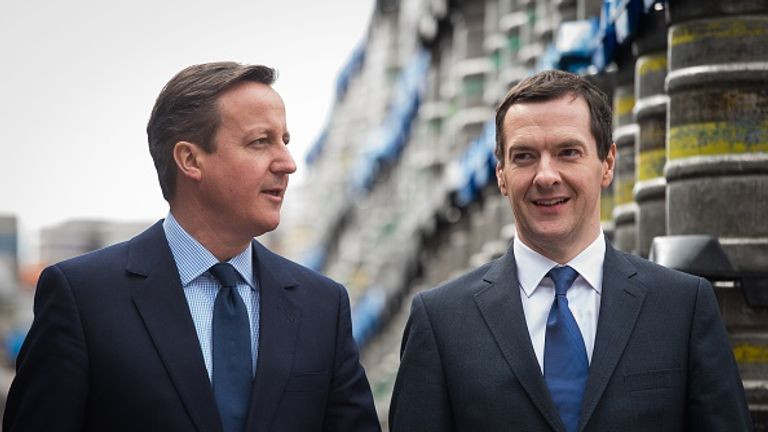Government tells Lords: We won't curb powers but behave on Brexit
The leader of the House of Lords says there are "challenges" ahead on Brexit and peers must show a "constructive approach".
Thursday 17 November 2016 13:32, UK
Proposals to curb the power of the House of Lords have been dropped by the Government, but peers have been warned the plans could be revisited if they block Brexit.
The House of Commons leader David Lidington has confirmed the plans to curtail the vetoing powers of peers have been scrapped.
It means they will still be able to reject a House of Commons decision when it comes to statutory instruments, a type of legislation implemented without Parliament having to pass an Act, which will be used to get through some of the legislation to leave the EU.
In a statement, leader of the House of Lords Baroness Evans said there was "no mechanism" for the decision of the House of Commons to carry when it comes to statutory instruments.
She said: "We recognise the valuable role of the House of Lords in scrutinising SIs but there is no mechanism for the will of the elected House to prevail when they are considered, as is the case for primary legislation.
"The Government is therefore reliant on the discipline and self-regulation that this House imposes upon itself.
"Should that break down, we would have to reflect on that decision."
Baroness Evans added: "The legislation we will have from Brexit will cause us challenges and I'm keen to work with members across the House to make sure that our revising and scrutinising role can be properly undertaken and we can do this House proud in the work that we do."
And she said the "constructive approach this House has so far shown will be ever more important".
The Prime Minister faces having to get a vote on triggering Article 50 - the formal process to begin the divorce from the EU - through both the Commons and the Lords ahead of her March deadline.
The Liberal Democrats have threatened to frustrate her plans by using its 100 peers to vote against it.
However, it is passing her Great Repeal Bill, which will officially transfer all EU law into British law for a smooth exit transition, that will require statutory instruments to be used.
The proposals on the House of Lords were made by Lord Strathclyde after peers forced George Osborne, then chancellor, to drop £12bn of tax credit cuts.
The review was seen as an act of revenge by Mr Osborne and David Cameron and criticised by the House of Commons Public Administration and Constitutional Affairs Committee as a "disproportionate response".
The Lords has only ever killed off five statutory instruments supported by the Government since 1945 - in 1968, twice in 2000, 2007 and 2012.
Mr Lidington told MPs: "I can confirm this morning that while the Government found the analysis of Lord Strathclyde compelling, and we are determined that the principle of the supremacy of the elected House should be upheld, we have no plans for now to introduce new primary legislation."
SNP Commons leader Pete Wishart criticised the move and said: "With the imminent ennoblement of the dark lord Farage, it seems like the only intention this Government therefore has for the House of Lords is just to increase the numbers of that grotesque place down the corridor."





